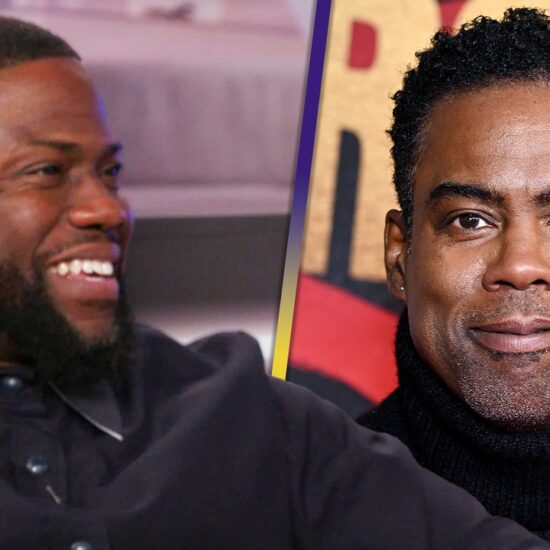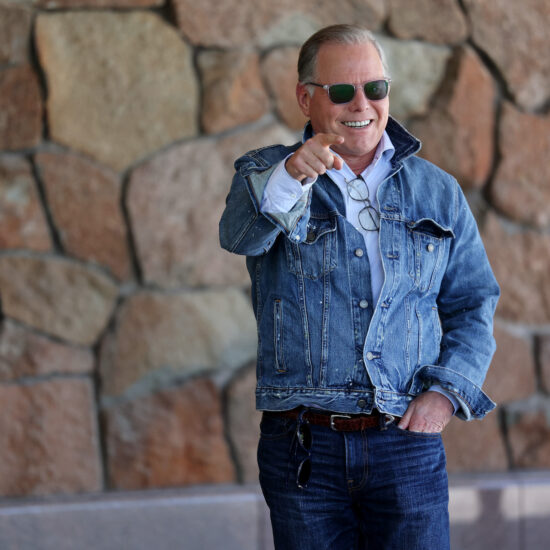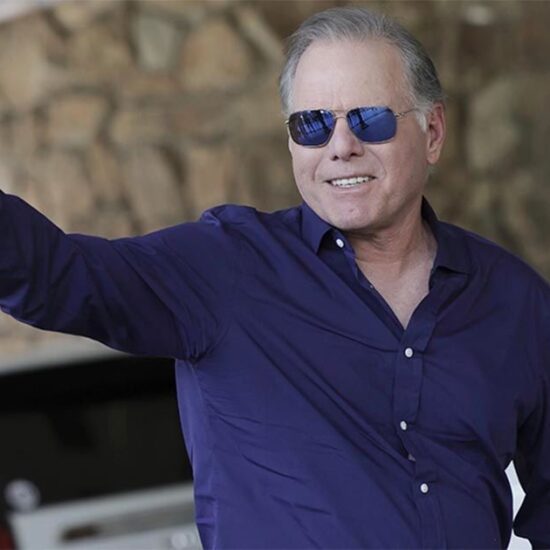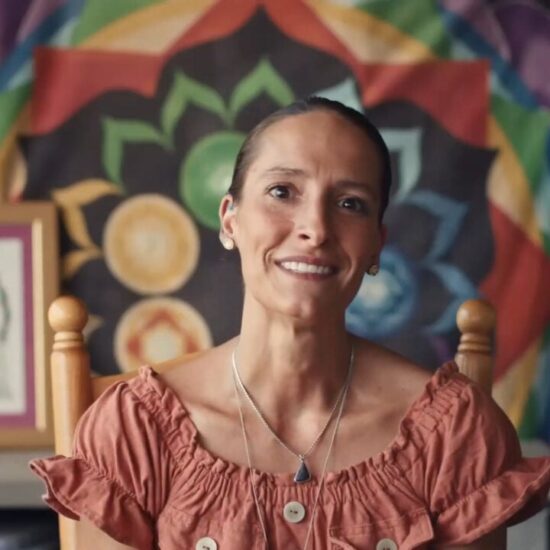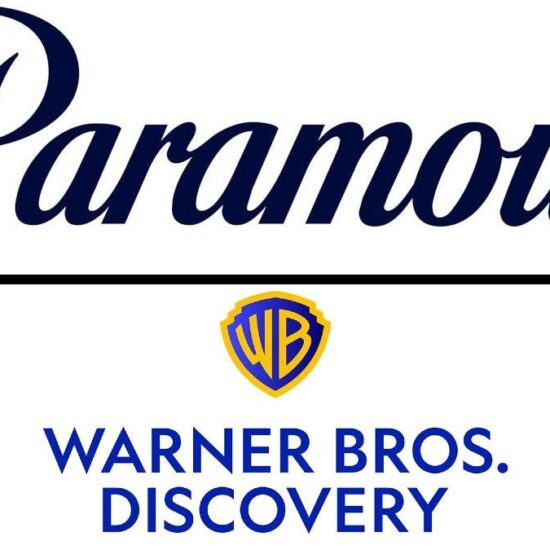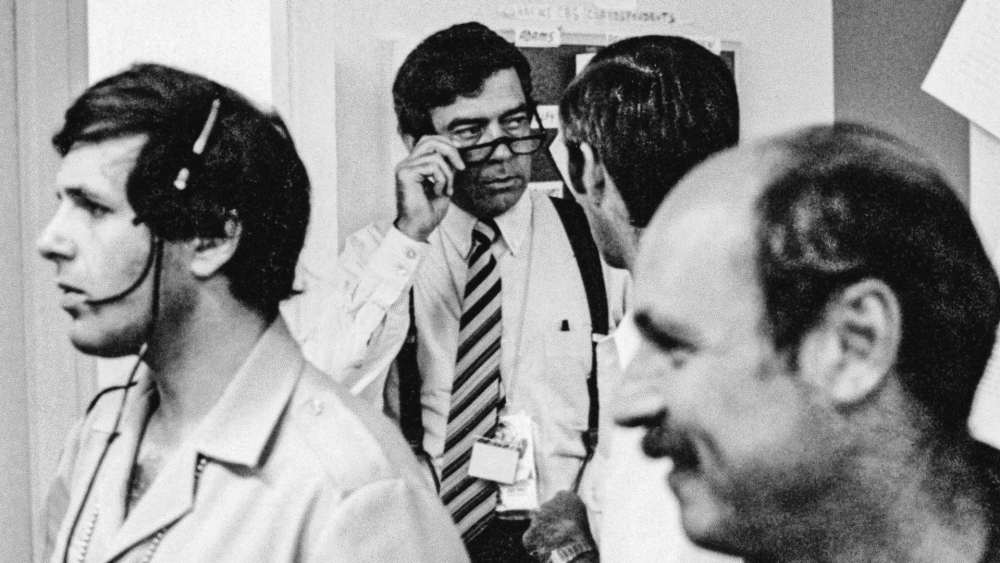
Dan Rather isn’t often rendered speechless. The TV news icon is always quick with a quip or a turn of phrase. There’s even a word for them: “Ratherisms.” Anyone who ever watched the anchor during a live news event knows them well; things like, “This race is tight — like a too-small bathing suit on a too-long ride home from the beach.”
But on this mild March afternoon in Austin, Texas, Rather is rather tongue-tied. The producers and director behind the upcoming documentary “Rather” have just screened the completed film for the former anchor and his family and friends. Turns out it’s not easy to articulate what it’s like to witness the span and scope of your life’s work on the big screen.
“It’s going to take me a while to really process what we’ve just seen,” Rather says to the small audience gathered for the private first look. “Probably the best thing I can do is wait until I can take a poll with my family, particularly my wife, Jean. They’re very good at telling me the truth.”
But ever the professional communicator, Rather later shares a few more thoughts with Variety. He sits down for a brief chat after most of the room has cleared out, before reporting to an intimate afterparty held by famed Austin grillmaster Aaron Franklin. “My first thought is, ‘Aren’t I lucky, and tremendously blessed,” he says. “This film is a reminder that I got to live my dream. Looking at the film as a whole — including times when I wish I had done a better job — I can say to myself, ‘I gave it everything I had.’”
Copyright Dan Rather Documentary, LLC
Directed by Frank Marshall and produced by Wavelength, Anchor Entertainment and Fremantle’s Original Productions banner, “Rather” will have its world premiere June 9 at the Tribeca Film Festival. The film manages to tell three stories at once in its tight 93 minutes: The evolution of broadcast journalism and the troubles a free press now faces, along with the slide of American society from hard-fought advances in social justice and democratic freedoms, all told through the lens of Rather’s career.
“We had some big topics there — journalism, society, Dan’s career, technology, corporations,” Marshall says. “My vision was to try and have Dan take us through these major milestones in American history, and tell the story through his eyes, weaving in and out of the social and historical events that were happening. He was, as he says, in the right place at the right time when those events were happening. First and foremost, he was a reporter telling you the news and telling you the truth about what is going on. And that’s what I really admire.”
Adds Anchor Entertainment founder Ethan Goldman: “I knew that this would be a real opportunity to tell his story as it pertained to the current state of journalism.”
Rather made it clear to Marshall and the producers early on that the documentary couldn’t shy away from the bumps in his career, including the controversy that caused him to step down as “CBS Evening News” anchor in 2005 after 45 years on the job. The year before, Rather had presented, on “60 Minutes II,” four documents containing allegations that President George W. Bush hadn’t fulfilled his obligations while serving in the Texas Air National Guard. But CBS News couldn’t prove the veracity of those docs, and several producers were fired. Rather stepped down as anchor, and his contract later wasn’t renewed. He sued CBS over his exit, and the controversy became the basis for the 2015 film “Truth,” starring Robert Redford as Rather.
“You can’t tell the story and not talk about what happened,” says “Rather” producer Jeff Hasler. “That was the most important thing to me in the beginning was, it’s warts-and-all Dan. And he was totally open for that. He did not interfere with the narrative. He did not try to push the narrative one way or the other. He was just engaged with us. openly and honestly on the directions we wanted the film to go. I think Dan’s willingness to bear is part of what makes it a great film.”
Sats Marshall: “Dan basically said, ‘If I did it and it happened, you can tell it. You can show it.’ Certainly, I respect his his integrity there because, he could have thrown somebody under the bus after the CBS News thing. And he didn’t. He knew he was the leader.”
At the same time, Marshall, Hasler, Goldman and fellow producer Jenifer Westpahl — who was instrumental in finding the funding to make the film — say they didn’t want that moment to dominate or weigh down the movie. “It’s not pivotal that we that we redebate that again,” Westphal says. What people want to know is what happened to Dan Rather after the firing.”
The specifics of Rather’s departure from CBS are still a difficult subject for his family to discuss. And so Rather’s daughter, Robin, says she was at first leery at the idea of a documentary about her father’s life. “We’re a really close-knit family, and protective of each other’s privacy,” she says. “I’ve never really done interviews about my dad. I was not going to start that now.”
Robin says she changed her mind thanks to her spirituality: She went to a Quaker school as a kid, and Hasler happened to be raised Quaker. That shared backstory helped earn her trust.
Because Rather’s wife, and son, Danjack, opted not to appear in the documentary, it was up to Robin and Danjack’s son (Rather’s grandson) Martin to share the family’s perspective. “Robin talks about how her dad is this deeply religious man — he reads his Bible every night. I would never in a million years have thought that,” Hasler says. “She gave us so much context. She was the one who helped him write his goodbye speech on his final CBS newscast. She was there for all the seminal moments, and to shed light on Dan’s relationship with Jean.”
Robin remains extremely protective of her father. “My No. 1 concern was, ‘OK, how’s dad with this?’” she says. “Because the movie is not a love letter, and to be completely honest with you, there are major parts of the film I almost violently disagree with. It wasn’t an easy experience to watch the film on a number of levels. But at the end of it, I really felt strongly that they did him justice. They captured who he really is — the father I know and the story I know. Somehow, they got it right, even though there are things I would have done differently if I was making a film about my father, which I would never do.”
When pressed, it’s clear that the circumstances of Rather’s CBS exit remain a delicate issue, nearly 20 years later. “There are elements of the CBS part of the story that I found very painful to watch,” she adds. “In the main, I think both my father and CBS can watch this film and feel solid in a way that hasn’t been possible since he walked out the door. And that is quite important… but whether or not there’s justice between my dad and CBS, I think that’s probably something I should keep to myself.”
Rather maintains he holds no grudge against CBS over what happened in 2004. “I wasn’t angry the day I left CBS,” he says. “Disappointed, sure. Wishing it gone another way. I never thought I’d leave there. Right up to the end, I thought somehow I’d stay. I had 45 terrific years at CBS News. Even the bad times were good times — please let the record show that I said that with a smile. And when I left, I said to myself, ‘Well, it was a hell of a run.’”
There’s a new regime at CBS, and current CBS News president and co-head Neeraj Khemlani once worked with Rather at “60 Minutes II.” The network, under CEO George Cheeks, opened up the archives to the filmmakers — unlocking vintage footage of Rather in the field that hadn’t been seen in years. “When I walked out of CBS, the people who were in charge basically said, ‘You’re finished,’” Rather says. “When I left CBS News, I didn’t realize it, but they passed the word, ‘Don’t give him any archival material.’ Through the years, I was not able to access it.”
That has clearly changed. The producers say Cheeks, Khemlani and former CBS News president Susan Zirinsky (who appears in the film) wound up being fully cooperative. “They cared deeply that this story gets told right,” Westphal says. “They came to the table and helped us with the archive.”

Rather: Everett Collection; Nixon/Agnew: AP Images
That included longer cuts and outtakes of clips you may have seen before: Rather on the ground in Dallas moments after President Kennedy is assassinated; getting roughed up during the 1968 Democratic National Convention; making it into China as the only anchor in Tiananmen Square before the crackdown on protesters. Then there’s the early footage of Rather in the deep South, covering the Civil Rights Movement under constant danger, as well as the dramatic Vietnam War images of Rather dodging bullets while crouching and reporting in the middle of a gunfight. (Says Rather: “Vietnam was a green jungle hell. It taught me the lesson that war is toughest on women, children and old people. Savage, crazy, insane.”)
“There’s a moment when he’s in Vietnam, they’re all pinned down and being shot at, and some medic says, ‘Hey, I need some help over here!’ And then Dan Rather goes, ‘I’ll help you,’ and he goes over,” Hasler says. “I get chills right now thinking about it.”
Robin Rather says some of that footage, even the Vietnam clips she had seen before, “almost makes me throw up every time I see it.” Robin grew up with her father usually on assignment in a war zone; she still remembers the postcards she’d get from him growing up, in all of which he would write the same thing: “War is hell.”
“You can see in that footage where there are literally bullets flying by and I have really clear memories of being five or six or seven years old and watching that,” she says. “You really had no no idea if he’s all right. I’m not going to complain, because my dad was doing what he loved and doing his dream, doing his deepest sense of purpose every minute of it. And I’m proud of him for doing that. It’s hard to be a young child watching that. But I would never complain about my family life. I’m very lucky because I’ve known my dad loved me every minute of every day of my life. He is a world class journalist, but he’s a world class unconditional, loving father.”
Robin also hopes the documentary sets the record straight about the reputation her father got over the years for being offbeat, fueled by instances like the time he was beat up on a New York street by someone who yelled, “What’s the frequency, Kenneth?” — which R.E.M. then turned into a hit song. Or the moment George H.W. Bush verbally attacked Rather during a live interview in a bid to look tough.
“You can see in this film for the first time, he was always in the right wing’s crosshairs, from the very beginning,” Robin says. “Starting in the Civil Rights era, through Watergate and all the issues with both of the Bushes. People have tried to characterize him as weird at times. My dad is, honestly, the least weird person imaginable. He took it to the hoop from the beginning of his career all the way through, in ways that people who have consistently tried to discredit him just couldn’t stand.”

© Kelly Zhu
Copyright Dan Rather Documentary, LLC
Rather remains humble about his place in CBS News, and broadcast journalism, history. “At CBS News, and I would, I would argue, in terms of American electronic journalism in general, it’s Murrow to Cronkite,” he says. “My goal, always, was to say, I’d love to do this job well enough it becomes ‘Murrow to Cronkite to Rather.’ It’s an unachievable goal. But it was always a kind of Noah’s star for me, an unreachable star, but worth going after. And the film represents my best effort to do that. Now, it falls short. Don’t misunderstand me, I have no illusions.”
But clearly there has been no retirement for Rather. As he moved on after CBS, “Rather” follows him and his longtime producer Wayne Nelson as they produce a newsmagazine show for HDNet (later AXS TV). In recent times, Rather has become a prolific commentator on Twitter, where he has 2.6 million followers. And he regularly dives deep into American politics and culture on his “Steady” newsletter, recently writing, for example, about the attack on public universities in Florida and other states.
“He moved on to a whole new chapter in his life and reinvented himself again,” Marshall notes. “There he is on Twitter with a lot of followers, and they want to know the truth. They really respect what he says, and he’s found a new way to have a voice. And I think he loves it.”
But Rather also hopes to use his visibility — including this documentary — to sound the alarm about his profession.
“I worry a lot about what’s happening to journalism,” he says, “partly because I worry a lot about what [its demise] creates in the way of danger for democracy and representative government. But I think the history of our country teaches us we are resilient. It may be really painful between, but there’s a small voice in me says, well, that optimism may be justified if we all work to make things better. And that’s part of the reason I continue to work now.”









